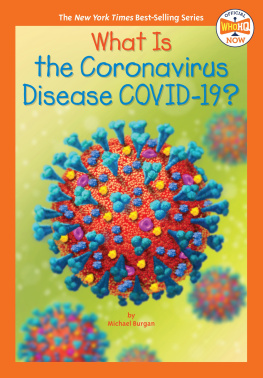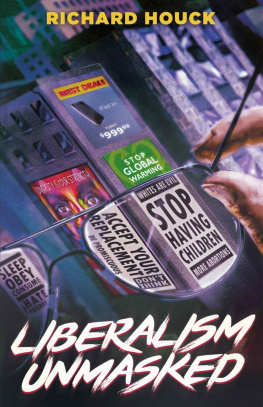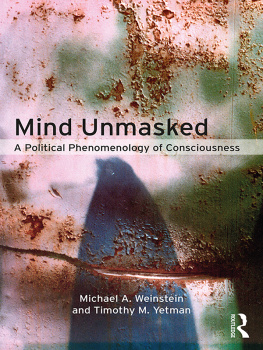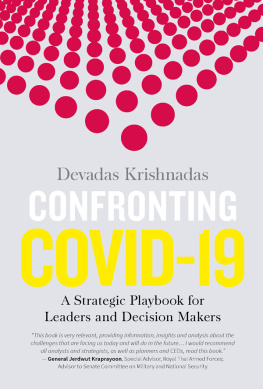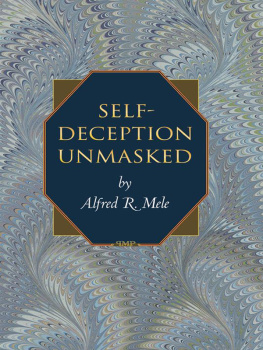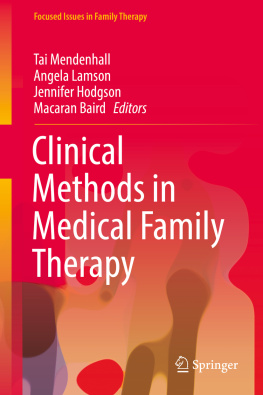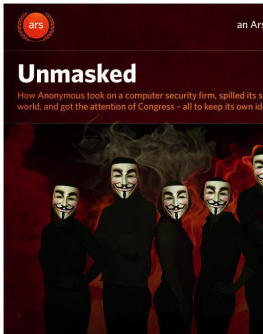Unmasked
Unmasked
COVID, Community, and the Case of Okoboji
Emily Mendenhall
VANDERBILT UNIVERSITY PRESS
Nashville, Tennessee
Copyright 2022 Vanderbilt University Press.
All rights reserved.
First printing 2022
Manufactured in the United States of America.
Portions of this work were originally published in a slightly different form as How an Iowa Summer Resort Region Became a Covid-19 Hot Spot, Vox.com, August 8, 20120, www.vox.com/2020/8/8/21357625/covid-19-iowa-lakes-okoboji-kim-reynolds-masks. Used by permission of Vox Media, LLC.
Library of Congress Cataloging-in-Publication Data on file
LC control number 2021040748
LC classification number RA644.C67 M463 2022
https://lccn.loc.gov/2021040748
978-0-8265-0452-4 (hardcover)
978-0-8265-0453-1 (epub)
978-0-8265-0454-8 (PDF)
For Bubs, for Mamoo For our family
CONTENTS
A NOTE ON NAMES
ALL NAMES AND identifying details have been changed to protect the confidentiality of those I interviewed formally for this research. I use pseudonyms and indicate so in the text, which is common practice among anthropologists. I have not anonymized my family members. I also have not changed the names of public figures, including business owners and elected officials. In many cases, I cite their public writing, interviews, and comments on the events throughout the summer recorded elsewhere; this is especially true among those individuals who declined to speak with me. However, I have changed the names of school board members whose views I recorded in public forums. I quoted some of these community leaders in an article I wrote for Vox in August 2020, just before they voted on masking for the school yeara period of intense community tension. I hope providing some anonymity for these leaders here impedes bringing those feelings back to the surface.
PROLOGUE
WRITING ABOUT YOUR hometown can be tricky. Especially when some of what you write may be unflattering. For five generations my family has resided in northwest Iowa, along the shores of West Lake Okoboji in the Iowa Great Lakes region. My great-grandparents bought some lakefront property from a businessman trying to make a quick buck in 1907. Over several decades they built a summer retreat with little cabins hugging the lakeshore. They bought another lot and eventually built a small family resort to which my grandparents devoted their lives, selling it only two years before my older sister was born. My father grew up on the shores of West Lake Okoboji and eventually instilled in me a similar love of the peaceful waters that run through his veins. I lived there too, until I left to study at a small college on the east coast.
This book is about balancing perspective. Although now Ive lived far from Okoboji as long as I lived there, the community is part of who I am. I have evangelized for these waters all over the world, dropping OKOBOJI towels, cups, and t-shirts for mentors, friends, and colleagues. Yet, as my ideas about the world grew bigger, and my experiences deeper, how I conceive a community that gave me so much has changed enormously.
When I left home to attend Davidson College, my unfamiliarity with the way things worked made me realize how little I knew about the world. I had to relearn American and world history because what I had learned growing up had been a heavily edited version. I read peoples stories and histories from the perspectives of those who lived them in courses in literature, anthropology, sociology, and philosophy. I also spent months in mentored courses in Nicaragua, Chile, and Zambia, which opened my eyes to the different ways people live in the world, and trained me to truly listen and learn from others in a deeper way than I had ever done before. I realized that people live in very different cultural contexts, even in the United States; many of my classmates came from private schools or wealthy Southern families that were very different from mine. Im a happy-go-lucky type of person, so I jumped in with both feet. But there were some aspects of Davidson College that made me uneasy (such as blatant differences in how students experienced the college based on race, class, gender, and sexuality). Despite my seeing and experiencing some of these things (re: sexism), as a cisgender white female I also realized how much advantage came with the parts of my person that I could not control (as others also could not).
I am now a medical anthropologist and professor at Georgetown University in Washington, DC, where I often tell my students that your twenties are for becoming who I bring together these perspectives in my research, in understanding what people struggle with and where (public health) and why and how people struggle with illness differently in one place as opposed to another (anthropology). I have interviewed hundreds of people (mostly women) around the world, trying to understand what makes people sick and why.
Yet, I have never missed an Okoboji summer. Even when my visits were brief, going home was comforting in part because I grew up next door to my British grandmother (my mothers mother), who showered me with love in her austere and proper way. After her husband died when she was in her early fifties, she returned many times to London to visit her family, while also traveling around the world during the bitterly cold prairie winters in Iowa. She inspired in me a passion for understanding places far away from my home, even when many people around me remained somewhat insular. We stayed very close until she died, just six weeks after my youngest daughter was born. Since she passed away, I have had a difficult time connecting with my home.
But when coronavirus spread throughout the world, and my family became integral to the COVID-19 response in Dickinson County in the Iowa Great Lakes region, my personal and professional life came together. This crisis drew me back to the community.
This book is the story of what happened during one Okoboji summer when a pandemic reached northwest Iowa, forcing the community to face a global challenge. My research and writing about this challenge cannot be divorced from my professional and personal identities. I work and live in a global community of scholars and policymakers who are constantly discussing how people, viruses, histories, and politics are interconnected. I continue to dedicate my professional life to understanding these challenges.
Yet I come from a place that can be frustratingly insular and isolationist, even though it certainly is not an island, bubble, or escape from reality. My family lives there and is deeply embedded in this communitygiving hours of their time to community service, investing in the future of the communitys children, and carefully monitoring the waters to ensure future generations can safely live in and on the sacred shores. I recognize and honor the advantages the community has given methe wealth my family gained by purchasing land before tourism drove up property values, growing up in a tight-knit community where I knew people cared for me, and having a public school system that enabled me to achieve my goals.
But there is still a need to understand and critique the devaluation of life that emerged during the summer when people faced an extraordinary question in the face of a virus: How do we care for each other?
CHAPTER 1
GLOBAL THREATS
I FIRST REALIZED that coronavirus might upend our lives one Tuesday afternoon when Dr. Rebecca Katz stopped by my office. It was March 3, 2020, and she was bustling through the Intercultural Center at Georgetown University. As she swept by, she popped her head into my office as she usually does to say hi.


